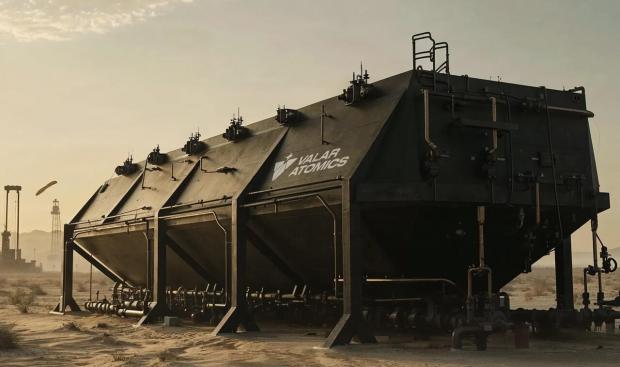
Breaking News
The Criminality Buried In The Epstein Files Is Worse Than Anyone Thought,...
 A Critical Review of Impacts of Greenhouse Gas Emissions on the U.S. Climate
A Critical Review of Impacts of Greenhouse Gas Emissions on the U.S. Climate
 The Great Reject is Upon Us! - #SolutionsWatch
The Great Reject is Upon Us! - #SolutionsWatch
 Google is issuing a call to action:
Google is issuing a call to action:
Top Tech News
 Drone-launching underwater drone hitches a ride on ship and sub hulls
Drone-launching underwater drone hitches a ride on ship and sub hulls
 Humanoid Robots Get "Brains" As Dual-Use Fears Mount
Humanoid Robots Get "Brains" As Dual-Use Fears Mount
 SpaceX Authorized to Increase High Speed Internet Download Speeds 5X Through 2026
SpaceX Authorized to Increase High Speed Internet Download Speeds 5X Through 2026
 Space AI is the Key to the Technological Singularity
Space AI is the Key to the Technological Singularity
 Velocitor X-1 eVTOL could be beating the traffic in just a year
Velocitor X-1 eVTOL could be beating the traffic in just a year
 Starlink smasher? China claims world's best high-powered microwave weapon
Starlink smasher? China claims world's best high-powered microwave weapon
 Wood scraps turn 'useless' desert sand into concrete
Wood scraps turn 'useless' desert sand into concrete
 Let's Do a Detailed Review of Zorin -- Is This Good for Ex-Windows Users?
Let's Do a Detailed Review of Zorin -- Is This Good for Ex-Windows Users?
 The World's First Sodium-Ion Battery EV Is A Winter Range Monster
The World's First Sodium-Ion Battery EV Is A Winter Range Monster
 China's CATL 5C Battery Breakthrough will Make Most Combustion Engine Vehicles OBSOLETE
China's CATL 5C Battery Breakthrough will Make Most Combustion Engine Vehicles OBSOLETE
Defending Against Strained Grids, Army To Power US Bases With Micro-Nuke Reactors

As soaring demand for electric power threatens to rapidly overtake America's supply, the US Army on Tuesday announced a plan to install nuclear microreactors at bases across the country. "What resilience means to us is that we have power, no matter what, 24-7," said principal deputy assistant secretary of the Army Jeff Waksman after the program was unveiled at the Association of the United States Army (AUSA) Annual Meeting Warriors Corner panel.
Pursuant to what has been christened the "Janus Program," the Pentagon is charged with bringing the first reactor online no later than September 30, 2028, and is currently identifying the first nine posts that will receive two reactors each. Those reactors will generate less than 20 megawatts of power, according to the Wall Street Journal. That's comparable to the demands of a single, small town. In addition to preserving the installations ability to function in the face of overwhelmed grids, the reactors will also serve as a safeguard against cyberattacks and weather catastrophes. The program is empowered by Executive Order 14299, "Deploying Advanced Nuclear Reactor Technologies for National Security," which was signed by President Trump in May.



